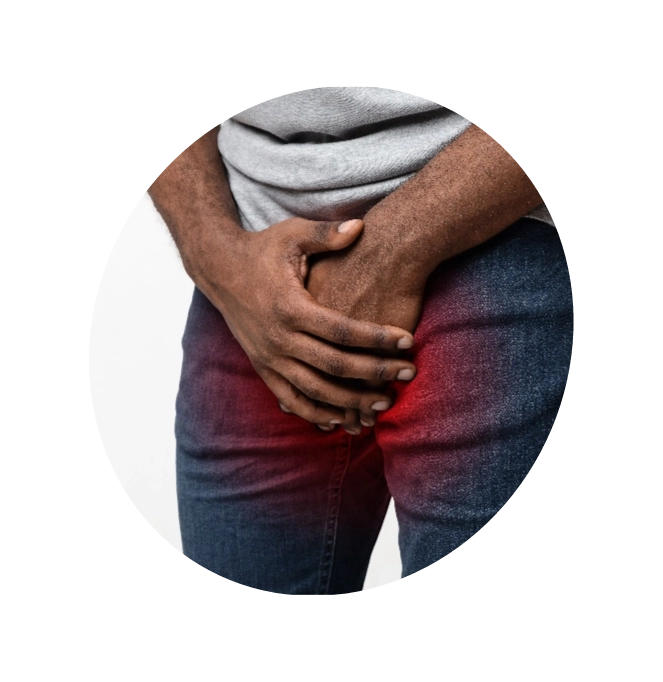What is Cystitis?
Cystitis is a swelling or infection of the urinary bladder. When caused by germs, it’s called a urinary tract infection (UTI). UTIs can be painful and annoying. They can also become a serious health problem if they spread to infect your kidneys.
Your urinary system is composed of your kidneys, ureters, bladder, and urethra.
They all contribute to eliminating waste from your system. Your kidneys, a pair of bean-shaped organs in your upper-posterior abdomen, filter waste from your blood.
Tubes called ureters carry urine from your kidneys to the bladder, where it is stored until it exits your body through the urethra. A urinary tract infection can begin when bacteria enter the urinary tract through the urethra and then begin to multiply.
The usual treatment is with antibiotics. You can take a number of steps to help prevent a bladder infection.
Signs and Cystitis Symptoms
Most people with bladder infections develop signs and symptoms that include:
- A strong, persistent urge to urinate
- A burning sensation when urinating
- Passing frequent, small amounts of urine
- Blood in the urine (hematuria)
- Passing cloudy or strong-smelling urine
- A feeling of pressure in the lower abdomen
- Low-grade fever
The two main types of bladder infections are:
- Community-acquired bladder infections. These infections occur when people who aren’t in a medical care facility, such as a hospital or nursing home, develop a bladder infection. This condition is common in women between the ages of 30 and 50, but is rare in men of the same age. However, men older than 50 may be at risk of this type of infection because of prostate enlargement, a common condition that can block urine flow in older men.
- Hospital-acquired, or nosocomial (nos-o-KO-me-ul), bladder infections. These infections occur in people in a medical care facility, such as a hospital or nursing home. Most often they occur in those who have had a urinary catheter placed through the urethra and into the bladder to collect urine, a common practice done before some surgical procedures, for some diagnostic tests, or as a means of urinary drainage for elderly people or people confined to bed. Nosocomial bladder infections can occur when a temporary or permanent catheter is placed in the bladder of a person who is unable to void spontaneously.
UTIs typically occur when bacteria enter the urinary tract from the outside, usually through the urethra, and begin to multiply. The urinary system is a powerful defense mechanism that helps to ward off microscopic invaders. The bladder is equipped with a protective coating that prevents any microbes from adhering to its walls. Urine also has antibacterial properties that inhibit the growth of bacteria. Despite this, there are certain risk factors that could increase the probability of bacteria multiplying and resulting in a full-blown infection.
Sometimes cystitis is referred to as honeymoon cystitis, because this bladder infection commonly occurs in women as a result of sexual intercourse. Bacteria can enter the bladder via the urethra during sexual activity. But even sexually inactive girls and women are susceptible to lower urinary tract infections because the anus, a constant source of bacteria, is so close to the female urethra.
The majority of cystitis incidents are initiated by Escherichia coli (E.coli), a species of bacteria commonly found in the rectal area. A new strain of antibiotic-resistant E. E.coli bacteria may be the root cause of recurrent and difficult-to-manage urinary tract infections (UTIs) in women.
Although rare, other causes of cystitis, or conditions that may mimic bacterial UTIs, include:
- Organisms found in tuberculosis or yeast infection (vaginitis)
- Radiation treatment to the bladder area
- Tumors in the bladder
- Interstitial cystitis
- Certain medications
What are the risk factors of Cystitis?
Some people are more likely than others to develop bladder infections or recurrent urinary tract infections. Women are one such group. Up to 20 percent will develop a bladder infection over a lifetime. A key reason is an anatomy.
Ladies have a shorter urethra when compared to men, meaning bacteria doesn’t have to travel as far in order to get to their bladder. Those (women) who are sexually active tend to have more UTIs because sexual intercourse can result in bacteria being pushed into the urethra. Additionally, women who use diaphragms for birth control also may be at higher risk. Hormonal changes during pregnancy may increase the risk of a bladder infection as well.
Other risk factors in both men and women include anything that impedes the flow of urine, such as an enlarged prostate or a stone in the bladder. Changes in the immune system, which can occur with conditions such as diabetes, also can increase the risk of UTIs. Extended use of bladder catheters can be necessary for individuals suffering from chronic illnesses or elderly people.
Research funded by the National Institutes of Health suggests that a woman’s blood type may play a role in her risk of recurrent infections of the bladder and urinary tract. Bacteria may be able to attach to cells in the urinary tract more easily in those with certain blood factors. But more research is needed to determine whether an association exists and whether it could be useful in identifying people at risk of recurrent infection.
If you have any symptoms of a bladder infection, talk to your doctor as soon as possible. If your doctor suspects you have a bladder infection, he or she may ask for a urine sample to determine whether bacteria, blood or pus is in your urine.
How is Cystitis treated?
Antibiotics are the first line of treatment for community-acquired bladder infections. Which drugs are used and for how long depend on your health condition and the bacteria found in your urine test, if such a test is performed.
The drugs most commonly recommended for simple UTIs include amoxicillin (Amoxil, Trimox), ciprofloxacin (Cipro), nitrofurantoin (Macrodantin, Furadantin), sulfamethoxazole (Bactrim, Septra and trimethoprim (Trimpex, Proloprim). Make sure your doctor is aware of any other drugs you’re taking or any allergies you might have.
Usually, symptoms clear up within a few days of treatment. However, you’ll likely need to stay on antibiotics for three days to a week, depending on the severity of your infection. No matter what the length of treatment, take the entire course of antibiotics recommended by your doctor to ensure that the infection is completely eradicated.
If you have recurrent UTIs, your doctor may recommend longer antibiotic treatment or refer you to a doctor who specializes in urinary disorders (urologist) or a doctor whose specialty is kidneys (nephrologist) for an evaluation to see if urologic abnormalities may be causing the infections. For some women, taking a single dose of antibiotic treatment after sexual intercourse may be helpful.
Hospital-acquired bladder infections can be a challenge to treat because bacteria found in hospitals are often resistant to the common types of antibiotics used to treat community-acquired bladder infections. For that reason, different types of antibiotics and different treatment approaches may be needed. Currently, researchers are testing whether using catheters pre-treated with antimicrobial products may help reduce the incidence of this type of bladder infection.
How do you prevent Cystitis?
You can take steps to reduce the risk of bladder infections. Women, in particular, may benefit from the following:
- Drink plenty of liquids, especially water. Cranberry juice may have infection-fighting properties. However, don’t drink cranberry juice if you’re taking the blood-thinning medication warfarin (Coumadin). Possible interactions between cranberry juice and warfarin can lead to bleeding.
- Urinate frequently. Avoid retaining your urine for a long time when you feel the urge to void.
- Wipe from front to back after a bowel movement. Doing so prevents bacteria in the anal region from spreading to the vagina and urethra.
- Take showers rather than tub baths. If you’re susceptible to infections, doing so can help prevent infections.
- Gently wash the skin around the vagina and anus. Do this daily, but don’t use harsh soaps or wash too vigorously. The delicate skin around these areas can become irritated.
- Empty your bladder as soon as possible after intercourse. Drink a full glass of water to help flush bacteria.
- Avoid using deodorant sprays or feminine products such as douches in the genital area. These products can irritate the urethra.

